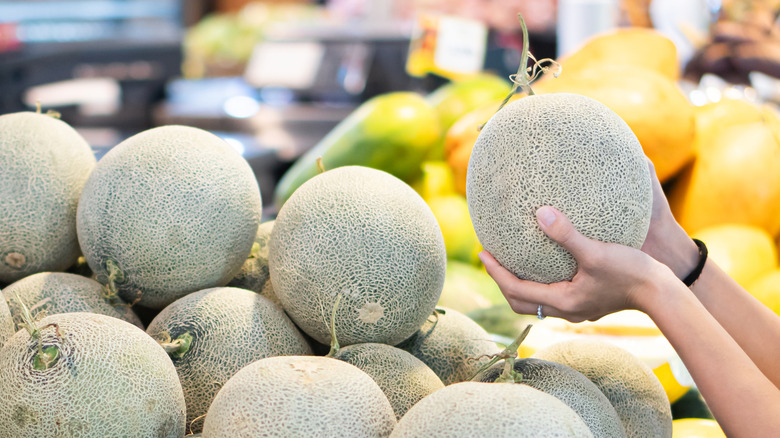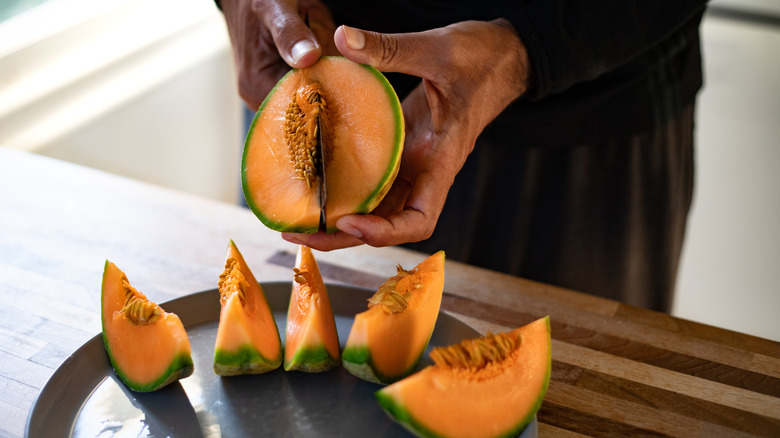The Major Cantaloupe Recall That Caused Six Deaths
The last thing consumers want after spending their time and hard-earned money buying groceries is a recall, or worse, an illness. However, recalls are often necessary to prevent the latter from happening. In the case of the widespread 2023 cantaloupe recall, the impact of the recall affected millions. In 2023, cantaloupes that were sold or distributed from September through early December of that year were recalled due to Salmonella. The recall spanned multiple brands and retailers and included both whole and pre-cut cantaloupe.
Investigation of the salmonella outbreak led to the identification of several brands that bore labels reading Malichita," "Rudy," and "405" as the tainted cantaloupe. Three companies that distributed those brands — Sofia Produce, Crown Jewels Produce, and Pacific Trellis Fruit — issued announcements regarding the fruit recall, which impacted 44 American states and regions of Canada.
Salmonella outbreaks are one of the most common reasons for food recalls. The bacteria can cause a range of symptoms,including diarrhea, fever, nausea, vomiting, and bloody stool. For some, the illness clears on its own, but in the case of the 2023 outbreak, the contaminated cantaloupe caused 407 illnesses, including 158 hospitalizations and six deaths. The Centers for Diseases Control announced an end to the mass outbreak on January 19, 2024.
Tips on safe cantaloupe handling and storage
Consumers can't always protect themselves from dangerous bacteria like Salmonella, especially on a scale like the 2023 cantaloupe outbreak. But there are ways to mitigate the risks through proper food handling and storage. The journey from harvest to home is a long one, and the outside of a melon comes into contact with everything from soil to water to humans, raising the risk of foodborne illnesses. Before cutting a cantaloupe, always make sure to wash the produce thoroughly to prevent the spread of any stowaway bacteria that would otherwise wind up in the meat of the melon.
Storing cantaloupe on the counter is okay for a few days, but ideally, once it starts to smell sweet or if you've cut it open, it should be kept in the fridge. A freshly harvested cantaloupe will last in the fridge up to 15 days. While these proper food safety measures are important for preventative purposes, it's important to note that proper storage and even freezing fruit like cantaloupe won't eliminate the danger of harmful bacteria like Salmonella. In the case of an outbreak, you should dispose of any cantaloupe that may have been impacted.

